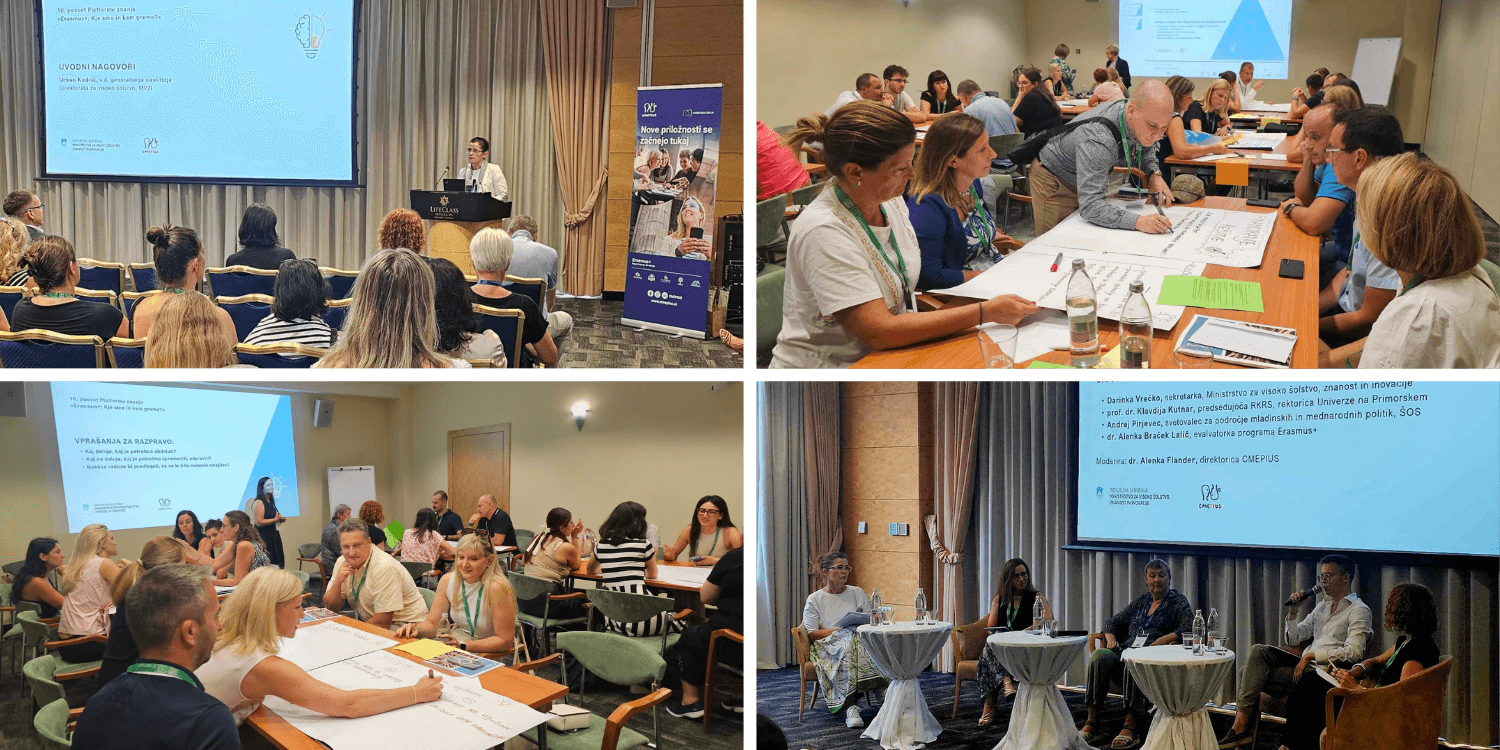Stay in the loop! Subscribe to our mailing list
On 2 September 2024, the 10th Knowledge Platform event called "Erasmus+: Where are we and where are we going?" was held in Portorož, Slovenia, co-organised between the Slovenian National Agency (CMEPIUS) and Slovenian Ministry of Higher Education, Science and Innovation. At the event, the Erasmus+ national report for the field of tertiary education was presented. The report is part of a general national report on the effects of the Erasmus+ program in Slovenia, covering a ten-year period (from 2014 to 2023), which systematically analyses the effectiveness of the programme and its impact on the wider education system.
The event was opened by Urban Kodrič, Acting. Director General of the Directorate for Higher Education at the Ministry of Higher Education, Science and Technology and dr. Alenka Flander, director of CMEPIUS, who welcomed the gathering and highlighted the importance of the Erasmus+ programme, especially its evaluation in the context of Slovenian higher education. This was followed by a presentation of the purpose and context of the event, presented by Barbara Zupan from the Service for European Affairs and International Cooperation. She explained the legal basis, the preparation process and the purpose of the national reports as defined by the European Commission - that is, to find out what effect the programme has on the individual, the institution and more broadly - on education systems across Europe.
The key findings of the evaluation of the Erasmus+ programme for the field of tertiary education were then presented and summarised by dr. Alenka Braček Lalić, evaluator and drafter of the joint national report.
The evaluation of the Erasmus+ programme in Slovenia highlights its positive impact on strengthening intercultural understanding, improving language and digital skills, increasing self-confidence and developing social skills. The programme supports an inclusive approach and equality in education, its effects are noticeable on pupils, students, teaching and academic staff, professional colleagues, adults and youth. The programme encourages not only international cooperation and partnership, but also innovation and improvement of the quality of educational processes, while at the same time strengthening the international visibility of the institutions involved.
The report emphasises the importance of the long-term effects of the Erasmus+ programme, which goes beyond individual completed projects and shapes the everyday life of educational institutions. The evaluation showed that the programme is successful according to most evaluation criteria, including effectiveness, efficiency, relevance, coherence and EU added value. However, it is precisely in the field of efficiency that the greatest potential for progress has been identified, which opens opportunities for further improvements by both the European Commission and national agencies.
The report is available at the following links (in Slovenian only):
Report on the effects of the Erasmus+ programme in the field of tertiary education
Summary of findings for the field of tertiary education
At the end of 2025, the European Commission, based on individual national reports, will present the final European report on the Erasmus+ programme, which will also be the basis for preparing a proposal for a legal basis for the program that will follow in the next financial framework after 2027.
